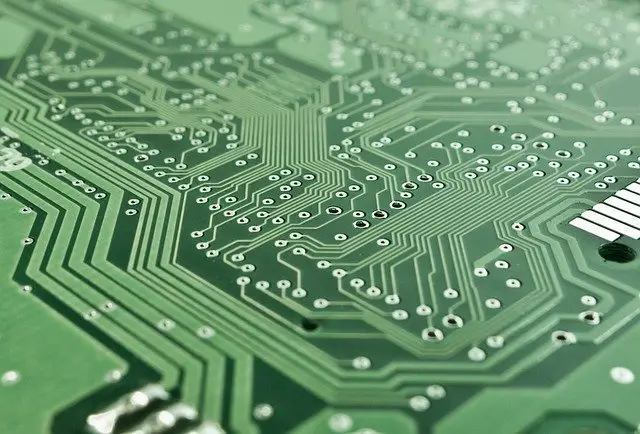
Hi! My name is Seth. I’m so excited to share my first blog post ever! You can learn more about me and my journey here. For this first post, I want to share my thoughts about learning electronics.
Electronics as a Field of Study
Electronics is probably the coolest subject there is to study, and one of the things that makes it so great is that it’s easy to tinker and learn in a hands-on way. With so many other subjects, there is a huge separation between the words on a page and tangible action. It’s tough to learn chemistry without acquiring potentially hazardous chemicals. The subjects of classical mechanics, thermodynamics, and quantum physics are tough to explore in a lab, never mind at home. Math is always abstract by nature.
Electronics combines all of these subjects in a field where even a child can play safely (given the right setup and precautions). You can learn in depth math, physics, electrical engineering and materials science at the highest theoretical levels and then apply that knowledge to something really cool that you can do at home inexpensively.
Electronics as a Method of Learning
Since it combines both theory and hands-on aspects, electronics is a great method of learning for both kids and adults. It can be a great way to introduce kids to an engineering mindset, to develop a love of the STEM fields, and to engage challenging subjects in a creative and supportive format. It’s also awesome for adults to keep our minds sharp, to learn new things, to use our hands as well as our bodies in union with each other.
Tinkering around with electronics is so much fun that it’s easy to access a flow state of being even when still new to the subject. When you have a circuit to build, there’s nothing more satisfying than getting into a flow state that rewards your brain and body. Accessing a flow state while doing electronics is fun and relaxing, but it also builds confidence and releases hormones that teach us how to enjoy a state of action. In my opinion, this is essential for learning in the long term.
Since the barrier for entry is so low, it can be pursued by almost anyone. There’s no limitation on age, body type, or intelligence. Once you become genuinely interested, anyone can learn the math and science required to fully understand electronics.
Electronics as a Hobby
All of these factors combine into making electronics one of the most satisfying hobbies. There is an ocean of knowledge to absorb, leading to lifelong satisfaction. There is the physical aspect of construction, of building something cool that gives you the joy of working on something fun.
Finally, you can take this knowledge and use it to design really cool projects. You can build your own robot, self driving car, AM/FM radio, computer, or automate something for another project. You can use it to help you garden, or brew beer, or just connect with yourself. You might learn to program, do robotics, get into model cars or railroads, or build your own games. You can launch a new career or enhance your professional capabilities in your current one. The sky is the limit with electronics. Literally; some hobbyists send rockets with sensors and cameras miles high. It’s all up to you!
How to Learn Electronics
The three most important things to remember when learning electronics are:
3) Have fun
2) Be curious
1) Stay safe
If you’re not having fun, you’re doing it wrong. Take a deep breath and enjoy the process.
Curiosity is what will get you to ‘expert level’ in any field of study. It’s an important skill that can be cultivated, and it ties into having fun.
Safety is the most important thing in any hobby, particularly electronics. If you’re unsure of something, stop! You should only work on circuits that you have guaranteed to be free of power or voltage sources. Disconnect any circuit before working on it. Don’t rely on a switch; the source must be fully disconnected or locked out. There are tools to help us stay safe by testing whether a circuit is live or grounding out a capacitor that might unexpectedly discharge. Speaking of capacitors, they are one of the most common hidden dangers: never touch a capacitor unless you are sure that it is discharged. You can check it with a voltmeter (we’ll cover this in a later section). If you follow the course on this website, you will learn how to safely interact with electronics and build circuits. We’ll cover more about safety in a future posting.
Thanks again for coming to our website. If you have any comments or suggestions, please reach out to [email protected]